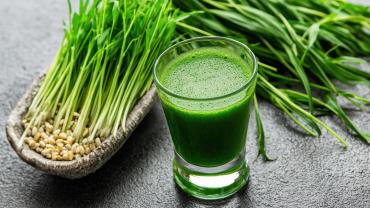
Phytonutrients (also called phytochemicals) are naturally occurring compounds found in plants (fruits, vegetables, herbs, and spices). Although they may not be considered essential nutrients, phytonutrients play an important role and work synergistically with vitamins and minerals to support antioxidant status and healthy inflammatory and immune responses.
There have been numerous studies showing that increasing the intake of phytonutrient-rich foods, such as fruits and vegetables, can play an important role in overall health and well-being:
Despite this abundant evidence, according to the CDC only about 1 in 10 adults in the U.S. consumes adequate amounts of phytonutrient-rich vegetables and fruits daily. An estimated 12% of adults consume the recommended 2 to 4 servings of fruits and only 10% meet the recommendation for 3 to 5 servings of vegetables.
The role of phytonutrient-rich superfoods in immune, brain, and heart health
Phytonutrient-rich superfoods have been shown to support cardiovascular health and healthy immune and inflammatory responses, possibly due to their modulatory effects on various signaling molecules, such as nitric oxide, nuclear factor kappa B, interleukins, tumor necrosis factor alpha, interferon gamma, and prostaglandin E2. Increased consumption of phytonutrient-rich fruits and vegetables has also been shown to support mental health in terms of outcomes such as optimism, self-efficacy, and life satisfaction, with the strongest effects being observed by consuming six or more servings per day. Below are some examples of phytonutrient-rich superfoods that can help bridge potential nutrient gaps in powerful ways and support immune, heart, and brain health.
Berries
Berries are rich in polyphenols, flavonoids, and tannins that promote antioxidant status and help maintain healthy inflammatory and immune responses. Their high content of vitamins C and K, folate, iron, calcium, potassium, and fiber also supports cardiovascular, intestinal, and cognitive health.
Spirulina
Spirulina, a blue-green algae, contains polyphenols, flavonoids, and unique compounds like phycocyanins, which work together to support immune defenses and healthy inflammatory responses by helping mitigate viral replication and certain pro-inflammatory cytokines and by promoting angiogenesis and fibroblast proliferation. These compounds, plus Spirulina’s omega-3 fatty acid content, have also been shown to play a role in supporting cardiovascular, brain, and cognitive health, antioxidant status, and communication between nerve cells.
Chlorella
Chlorella, a green microalga, delivers a broad spectrum of vitamins, minerals, amino acids, and phytonutrients. It supports immune function and cellular health while promoting antioxidant status and oxygen transport. Research also suggests benefits for healthy lipid metabolism, blood pressure regulation, and cardiovascular health.
Nettle
Nettle (Urtica dioica) contains a range of beneficial compounds, including terpenoids, carotenoids, lignans, tannins, flavonoids, and phytosterols, that collectively may support immune function, brain health, cognitive health, and cardiovascular health. Notably, flavonoids like rutin and kaempferol work synergistically with vitamin A to help maintain healthy inflammatory responses and antioxidant balance.
Barley grass
Barley grass is particularly rich in vitamins (A, B, C, and E), minerals (iron, magnesium, selenium, potassium, and calcium), and phytonutrients like chlorophyll and flavonoids. These compounds promote detoxification and antioxidant activity while supporting immune resilience, gut barrier integrity, and healthy white blood cell function.
Wheatgrass
Wheatgrass, similarly rich in phytonutrients and essential vitamins and minerals, supports brain, heart, and immune health by promoting antioxidant status, proper detoxification, healthy inflammatory responses, healthy lipid metabolism, and electrolyte balance.
Camu camu
Camu camu (Myrciaria dubia) stands out for its high vitamin C and polyphenol content, including flavonoids and anthocyanins, which contribute to antioxidant status and help support cardiovascular, brain, and immune health.
Burdock root
Burdock root (Arctium lappa) contains inulin (a prebiotic fiber) alongside chlorogenic acids, lignans, and quercetin, helping to maintain gut and liver health while promoting antioxidant status and balanced inflammatory responses.
Carrots
Carrots offer phenolics, carotenoids, and polyacetylenes that, together with vitamin C, support antioxidant activity, heart and immune health, and help maintain healthy inflammatory signaling.
Apples
Apples contain unique polyphenols like phloretin and phloridzin, which support intestinal and immune health, with additional benefits for maintaining balanced inflammatory responses.
Cranberries
Cranberries, rich in proanthocyanidins and other flavonoids, contribute to cardiovascular and brain health while supporting immune defenses and antioxidant capacity.
Grapes
Grapes are a concentrated source of polyphenols, including resveratrol, anthocyanins, and quercetin. These compounds promote vascular and metabolic health, support antioxidant status, and help sustain healthy immune and inflammatory responses.
Incorporating phytonutrient-rich superfoods into our diet can be a powerful way to support healthy immune responses, heart health, and cognitive and mental health. From vibrant berries to dark leafy greens, nature can offer us a colorful palette of nutrients that work harmoniously to support many physiological processes.
Learn more about phytonutrients and their role in our health:
Functional Flavonoids in Blueberries Support Redox Balance
The Intelligent Inner Lining of Blood Vessels: Nutrients that Support Vascular Health
Polyphenols to Support Antioxidant Activity in Children and Teenagers
How Polyphenols Promote a Healthy Gut Microbiome
The Latest on Red Grape and Gut Microbial Health
By Antonia Toupet, PhD